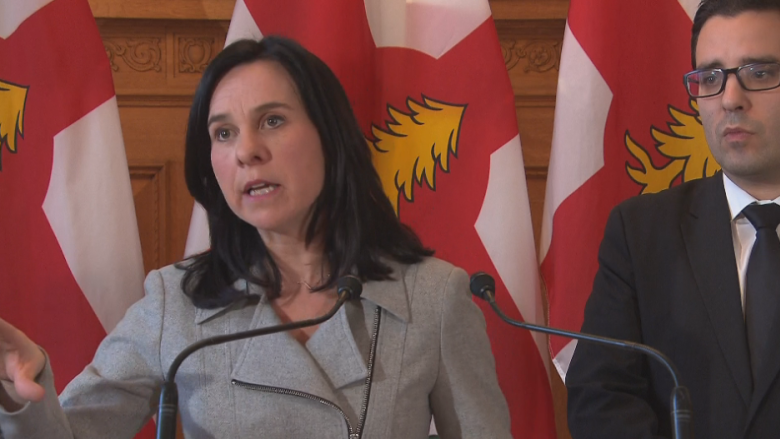Montreal mayor cancels Formula E race, calls it 'financial fiasco'
Montreal will no longer host the controversial Formula E electric car race, now that Mayor Valérie Plante's administration has learned taxpayers would be expected to shell out up to $35 million for the second edition of the race in 2018.
"Montrealers have made it clear that we can't waste their money on poorly planned projects that don't serve them," Plante said.
She criticized the former Coderre administration for not showing any fiscal savvy.
"It was clear as of last May that the organization was headed straight for a financial fiasco," she said.
Montreal it's electric, the non-profit organization behind the race, owes creditors $6.2 million for unpaid bills and is $9.5 million into its line of credit.
These cost overruns are all on top of the city's commitment of $24 million over six years.
On Monday afternoon, Formula E tweeted a response to the announcement, writing, "Ouch! That hurt!" accompanied by a video of a race car crashing into a guardrail.
Formula E issued a statement saying that management was "surprised and disappointed" by what they called a unilateral decision taken by the Plante administration.
"This is a clear case of a new mayor undoing what the previous mayor did. Whilst there is a contract in place, we will not make further comments at this point as this is now in the hands of our Canadian legal counsel."
Why she pulled the plug
Plante said the city had three options when it came to what would happen to Formula E next year: redo the Circuit Gilles-Villeneuve and move the race there, create a new racetrack elsewhere, or postpone the race for a year to try and find a better option.
The Plante administration settled on suspending the race in 2018 to evaluate what it would do — but Formula E said this was unacceptable, so Plante pulled the plug instead.
Plante said she isn't sure how much withdrawing from Formula E will cost but said she's confident that it will be less expensive than continuing with it.
Montreal it's electric issued a statement after Plante's announcement, saying it would collaborate with the city to close the balance sheet on the event. It maintained a positive spin on the race itself.
"Despite a negative media perception due mainly to the cost of the event, the obstacles to traffic and the constraints imposed on the citizens in the neighborhood, the event itself was a great success."
The organization also tried to distance itself from the financial losses, saying that all of the contract negotiations were done by the mayor's office directly.
Montreal it's electric added that while there are outstanding bills owed to Formula E and Evenko, all of its local suppliers had been paid.
The group is expected to present an update on its finances to the city in January.
Campaign promise fulfilled
During the election campaign, Plante said she would hold the race at the Circuit Gilles-Villeneuve or cancel it altogether, if possible.
Figures released just before the Nov. 5 municipal election showed only 25,000 tickets were sold and 20,000 were given away to boost attendance numbers.
Formula E was the initiative of former mayor Denis Coderre, who said the race would help promote sustainable energy initiatives in Montreal.
The race was slated to be held again in 2018 and 2019.
It was widely criticized for its use of public funds, something other cities don't do, and for its location in the east end of downtown Montreal, where it forced the closure or reconfiguration of several city streets.
In the fall, Plante slammed the race for its financial impact on the city.
"What were the economic benefits? Was it worth it for the citizens who felt trapped and the businesses that lost money?" Plante said.
Neighbourhood opponent delighted
Heidi Miller, who organized an online opposition group to the race called Formule Citoyenne, said she's happy that Mayor Plante "respected her promise."
"I did a little jig. I was really excited. I was really happy," said Miller.
She lives in the area where the race was held and mobilized her friends and neighbours to lobby for the event to be moved to a less populated area.
"This was the best decision that could be made."



